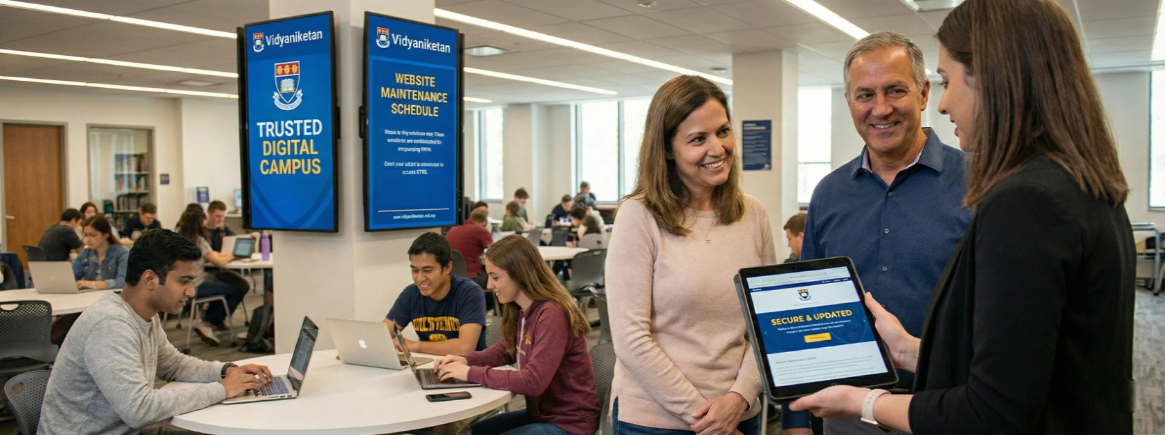How Regular Website Maintenance Builds Trust in Educational Institutions

Strengthening Educational Website Credibility Through Consistency, Security, and Accuracy
A school or university website is more than a digital brochure—it’s the public face of your institution. Students, parents, and faculty rely on it every day for information, updates, and communication. When it works well, it builds confidence. When it doesn’t, it creates doubt.
Here’s the thing: educational website credibility isn’t just about design or content. It’s about reliability. Regular website maintenance is what keeps your digital presence accurate, secure, and trustworthy—just like your institution’s reputation offline.
How regular website maintenance builds trust
1. It keeps information accurate and Up-to-Date
Students and parents visit educational websites for facts—admission dates, timetables, fee structures, and announcements. If any of that information is outdated, trust takes a hit. Regular maintenance ensures your website reflects real-time data, so visitors always get reliable information.
2. It protects student and faculty data
Security lapses are a dealbreaker. Educational institutions handle sensitive records, so a hacked or compromised site can erode trust overnight. Routine security patches, malware scans, and SSL renewals prevent breaches and protect everyone who interacts with your site.
3. It ensures fast and smooth performance
People expect instant access to information. A slow or broken site frustrates users and makes your institution look unprofessional. Maintenance—like caching, image optimization, and regular cleanup—keeps your site fast, responsive, and dependable.
4. It improves SEO and online visibility
Credibility isn’t only about how people see your institution—it’s also about how search engines rank it. Search engines favor websites that are active, well-maintained, and technically sound. Maintenance keeps your educational website optimized, helping it appear in more relevant searches.
5. It maintains accessibility and compliance
A credible institution is an inclusive one. Regular accessibility audits ensure your website meets ADA and WCAG standards, so every student—regardless of ability—can use it. Compliance isn’t just legal; it’s ethical, and it strengthens your institution’s integrity.
Signs your website might be hurting credibility
- Outdated announcements or expired events
- Slow loading or frequent downtime
- Broken links or missing pages
- Security warnings or expired SSL certificates
- Inconsistent branding or layout across pages
If any of these sound familiar, it’s time to prioritize maintenance before it affects public perception.
The long-term payoff of consistent maintenance
When visitors consistently find your website reliable, they start trusting your institution as a whole.
Parents feel reassured. Students feel confident. Faculty feel supported.
Regular maintenance isn’t a cost—it’s an investment in your institution’s digital reputation. It shows that you care about communication, transparency, and quality.
Ready to strengthen your educational website credibility?
If your website is outdated or slow, it’s time to make maintenance a regular habit, not an occasional fix.
Our Website Maintenance for Educational Institutions service keeps your site secure, updated, and performing at its best—so your credibility grows with every click.
👉 Learn more about our Website Maintenance for Educational Institutions
FAQs
What does educational website credibility mean?
It refers to how trustworthy and reliable your institution’s website appears to visitors. A credible site is accurate, secure, and easy to navigate.
How does website maintenance affect credibility?
Regular maintenance ensures your site stays updated, secure, and fast—key factors that improve trust and professional perception.
What are some common credibility issues on school websites?
Outdated information, broken links, expired SSL certificates, and inconsistent layouts are common issues that reduce credibility.
